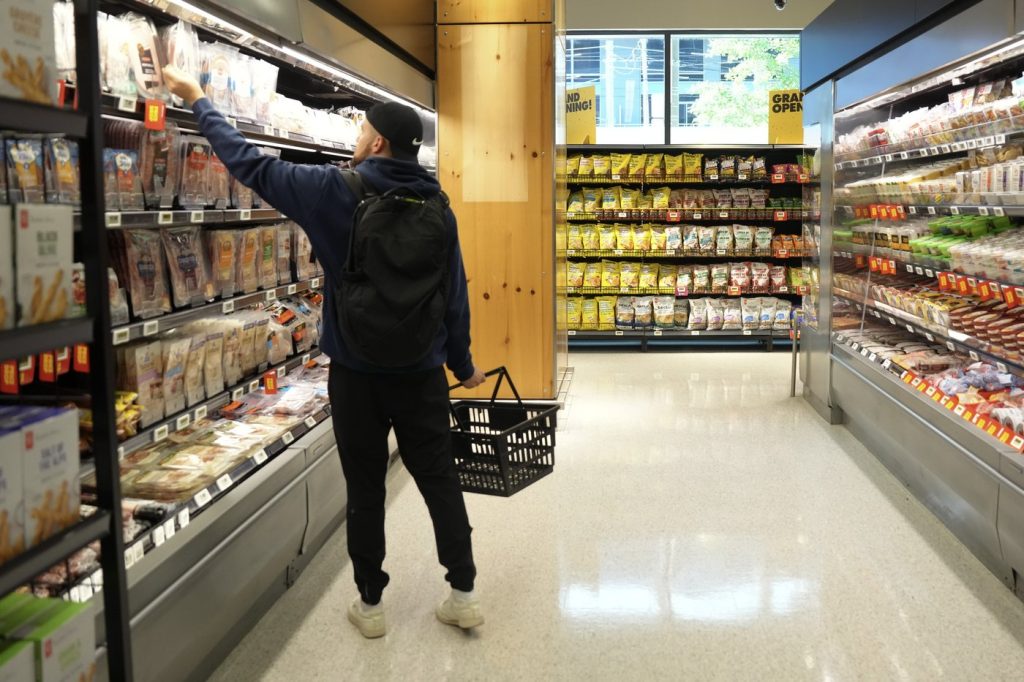As Canadian grocery chains adapt to the ongoing trade war with the United States, Loblaw Companies Limited has announced a new initiative to help consumers understand the impact of tariffs on product pricing. The company plans to implement new symbols alongside product prices in its stores, indicating whether a price increase has been influenced by retaliatory tariffs resulting from tensions between the two nations.
According to Loblaw spokeswoman Catherine Thomas, customers are expected to start observing these changes as early as next week. Recent actions taken by U.S. President Donald Trump, who enacted tariffs on Canadian goods, prompted the Canadian government to respond with its own set of tariffs on a broad range of American products. This escalating trade dispute has underscored the challenges faced by Canadian retailers who must navigate fluctuating prices due to these tariffs.
The new symbol introduced by Loblaw features a letter “T” positioned inside a white triangle over a grey box. This “tariff” symbol serves as a visual cue to inform customers when the price of a product is influenced by such tariffs, offering transparency in product pricing during a complex economic period. Additionally, Loblaw will be incorporating maple leaf symbols on items that have been prepared in Canada using a mix of domestic and imported ingredients, further promoting Canadian-made products amidst the ongoing trade tensions.
Thomas added that even products prepared in Canada may experience price hikes if their raw components are sourced from the United States. This situation illustrates the interconnectedness of the North American supply chain. Alongside tariffs, variations in commodity prices, coupled with a weak Canadian dollar, are also factors contributing to potential cost increases for consumers shopping at Loblaw stores.
As the trade war continues to unfold, Canadian consumers are likely to feel the effects not only through potential price increases on grocery items but also by seeing a concerted effort from retailers to highlight Canadian products. Companies are encouraged to adapt their marketing strategies to emphasize local sourcing, thereby appealing to consumers who may prefer Canadian goods during times of international economic strain.
This initiative by Loblaw is reflective of a broader trend in the Canadian retail sector as grocers seek to adapt and respond to the changing economic landscape influenced by international trade policies. By providing customers with clearer information regarding pricing and sourcing, Loblaw aims to maintain consumer trust amidst the looming uncertainty of trade relations with the U.S.
This report emphasizes the proactive measures companies like Loblaw are taking in response to external economic pressures and their commitment to transparency. With the evolving trade landscape, Canadian retailers are likely to continue facing challenges while adjusting their strategies to meet customer expectations for local products and fair pricing.










